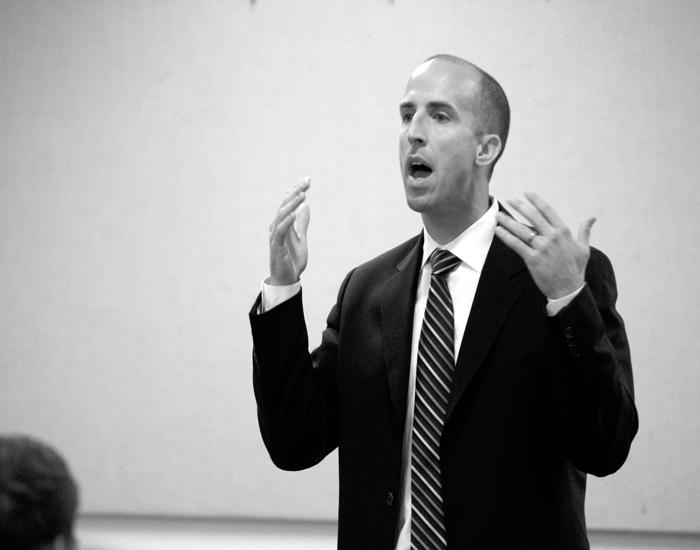Case Western Reserve University’s chapter of Young Americans for Liberty (YAL) hosted Michael F. Cannon of the Cato Institute in Washington, D.C this past Monday, Sept 13,. YAL shares Cato’s initiative of promoting individual liberties, which according to Cannon and many like-minded Americans are being assaulted by President Obama’s proposed healthcare reform legislation.
Cannon, Cato’s director of Health Policy Studies, began the seminar by explaining the current healthcare system through his lens. People who have health insurance pay premiums that go into a large pool. The money in this pool funds treatment given by medical care providers across the nation. So if you have health insurance but do not require expensive treatments, you are essentially paying for someone else’s care. Cannon praises this idea because it exemplifies the principle of voluntary exchange. “Health insurance is bought out of self-interest, but the pool pays for doctors and nurses to save lives,” as he reasoned that voluntary exchange promotes compassionate behavior.
However, Cannon also listed many shortcomings of the current system. Because everyone pays an average premium to preclude increased premiums if/when they get sick, “insurance companies look over physicians’ shoulders to protect the pool’s money.” Though these “gag rules” are unethical, “companies can still trap people by giving lousy claims and customer service.” The patient can’t switch companies because he or she is already sick and another company won’t want to take on a major liability. This thought leads to the mantra that “companies compete to avoid sick people rather than to cover them,” which Cannon repeated multiple times throughout the seminar.
After presenting the current crisis, Cannon then explained why he thinks “Obamacare” represents an affront to individual liberties. President Obama’s plan, slated to take effect in 2014, will still have price controls, or average premiums. According to Cannon, this is a central problem that the government is failing to fix, as “insurance companies will continue to compete to avoid sick people.” The topic of employer-sponsored insurance also came up during this portion of the seminar. Because of price controls, many people lose their health insurance when they lose their job. Ironically, in many cases people lose their jobs because they are too sick to work and need health insurance the most. Cannon claimed that the government created this problem and Obama’s reform bill fails to solve it.
During the question and answer session, Laura Tartakoff raised the issue which Cannon believes is the reform bill’s main inhibition of individual liberties: the individual mandate. Tartakoff, a professor of political science at CWRU, expressed concern that the reform bill requires people to either buy health insurance or pay a fine. Cannon claims that the minimum care package will be a laundry list of medical treatments in order to accommodate everyone’s needs, making healthcare a large, mandatory expense for many Americans.
Cannon’s proposed remedy is to change who controls the money within the healthcare system by erasing the preference for employer-sponsored healthcare. Then the government must deregulate the entire system, expanding the number of choices available to American citizens so that they can choose policies based on their financial situations and specific medical needs.
With Cannon’s invitation, CWRU’s Young Americans for Liberty raised their profile in the campus community. Cannon’s views on the decisive issue of healthcare reform echoed YAL’s persistent push for the awareness of the importance of individual liberties in America.


